Empathy for leadership
This post coincides with my talk at the Manchester Tech Festival Leadership day (which was on 4th November), and my latest podcast episode (released on 31st October).
Also, this is a super long post, just over 1500 words, for free. If you like this, please share. This newsletter is entirely reader supported and funded, so if you like my work, and can afford to throw me £5 a month, you can subscribe for weekly posts just like this.
I spoke about empathy in leadership, and I wanted to expand some thoughts here.
So, firstly, a reminder on the definition of empathy we use here:
In empathy, the empathizer understands, feels, and shares another person’s world with self-other differentiation. (see my post for more exploration of that definition)
We know that empathy is important in leadership and management:
Being able to offer an empathetic and supportive environment means your employees and colleagues will be more engaged, feel safer, and generally will be happier and more productive.
It means you’re more likely to build diverse teams, which we know leads to better performance and productivity.
Empathy is also important when it comes to building tech. You want to think about your users, when and how they’ll be using your products, because then you can build something that fits their needs more effectively. It also will help you find edge cases or scenarios you need to support (or avoid), because again, you can more effectively think about how your product will be used by different users.
Empathy is really important in conflict resolution. Being able to see things from other people’s point of view can help see why other people have a different view to you. Responding with empathy signals that you’re open to listen, and willing to give people space. It means going forward people are more likely to be open towards you, leading to better communication and fewer conflicts.
As a leader, you’ll want to model empathy for the people you lead, because we want to lead by example.
So if we know empathy is important, how do we build that empathy in our leadership? Empathy is a skill, and as such can be practised and deepened.
Here’s my imperfect metaphor for empathy. It’s like a lil microcosm of things that all feed into each other.
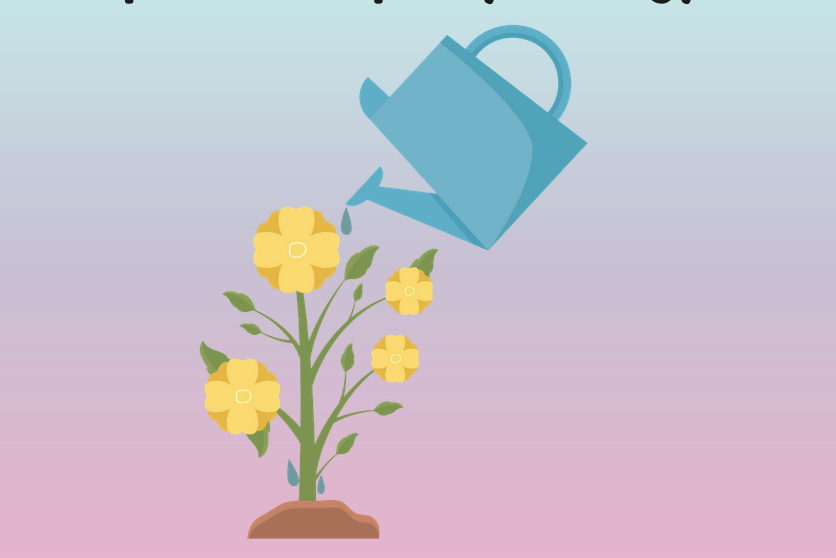
We’re gonna cover three things you can do to help deepen your empathy, and they all feed into each other. Self awareness, grounding, self care. There are lots of other things that can contribute to empathy, but these are the three I think can help both in the long and short term.
The first thing I want to talk about is grounding.
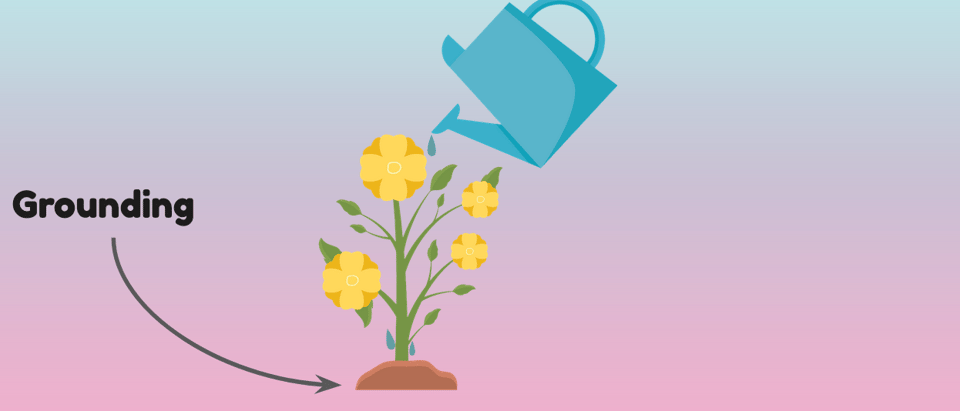
How many times have you multi-tasked in a meeting, or realised you weren’t listening to someone because your mind was elsewhere? Maybe you’ve experienced a time when someone has said something and it’s triggered some thoughts, or memories, or something else that means you’re no longer in the room.
These are all examples of being ungrounded, or becoming ungrounded.
Being ungrounded can leave you feeling scattered, reacting to things without thinking, out of control, or unable to focus
Grounding is a technique that helps keep you in the present and helps reorient you to the here-and-now and to reality. There are a bunch of different ways to ground yourself, here’s a list of 50 different ways. Try some out and see what works and what doesn’t. https://www.healthline.com/health/grounding-techniques#physical-techniques
Leaders tend to be juggling lots of different plates, and often don’t have a second to breathe, never mind anything else. Finding time to just be and take stock can be difficult. Figuring out how to ground yourself and building that practice is really important.
Taking a second to bring yourself into the present can help you build that ability to take a step back and respond, rather than reacting from a place of urgency that can lead to rash decisions or unhelpful reactions to things.
Like this post? Subscribe here!
Next I want to talk about self care.

Self care is about being kind and caring to yourself. Learning how to spend time with yourself with kindness will help build self awareness, resilience, and self-empathy
Learn your patterns, learn your warning signs for a bad day and find ways to be kind to yourself in the face of struggle or failure.
Celebrate and learn from your wins as much as you analyse your failures. We talk a lot about learning from failures and moving through them, and that’s absolutely important, but do you celebrate yourself? Do you negate success in the name of constant improvement?
Self care will allow you to be grounded, present, and empathetic. I have so much writing on self care, so I’m going to link to a few newsletters here:
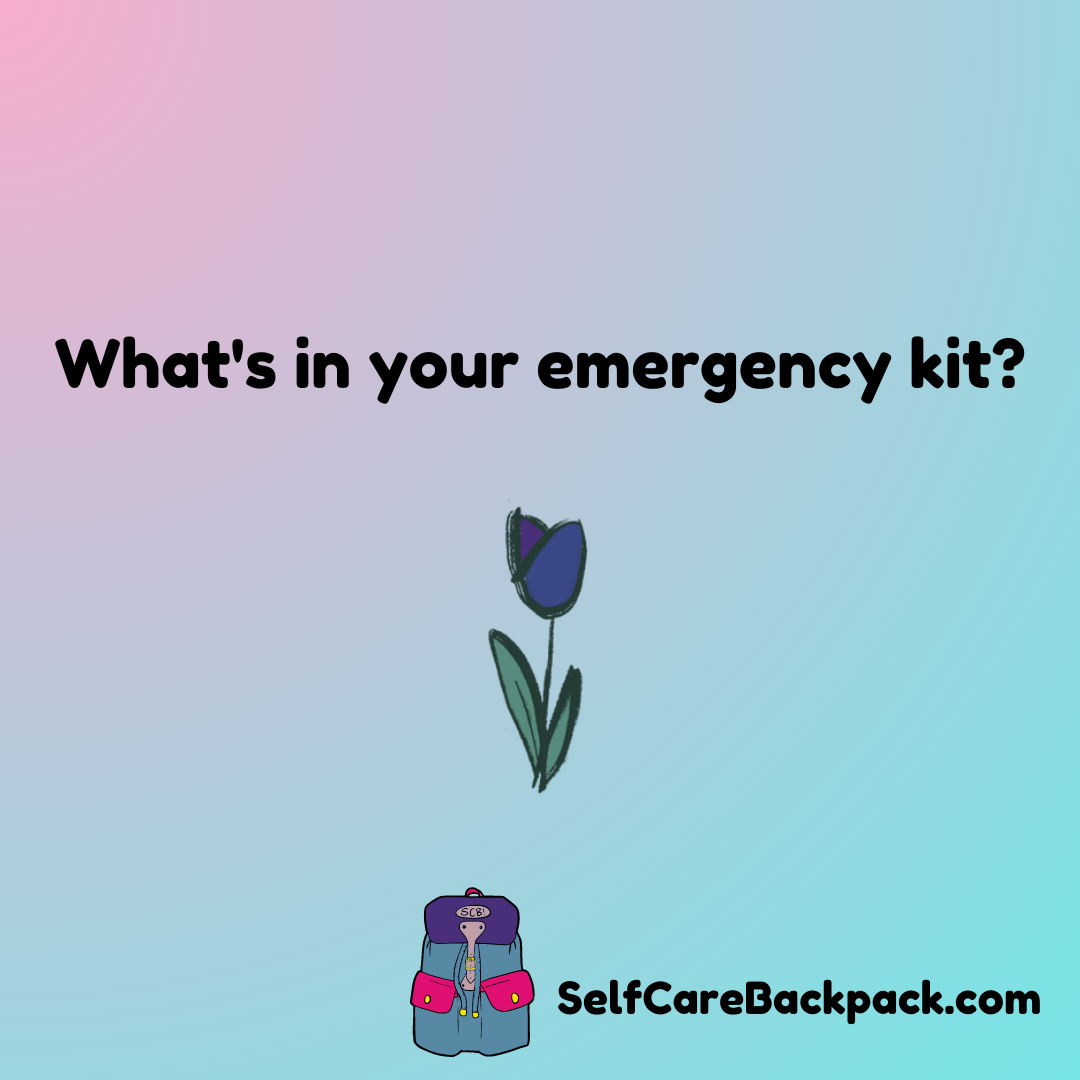
Plan for bad days on your good days • Buttondown
This sounds obvious, and it is, but it's also a surprisingly powerful exercise
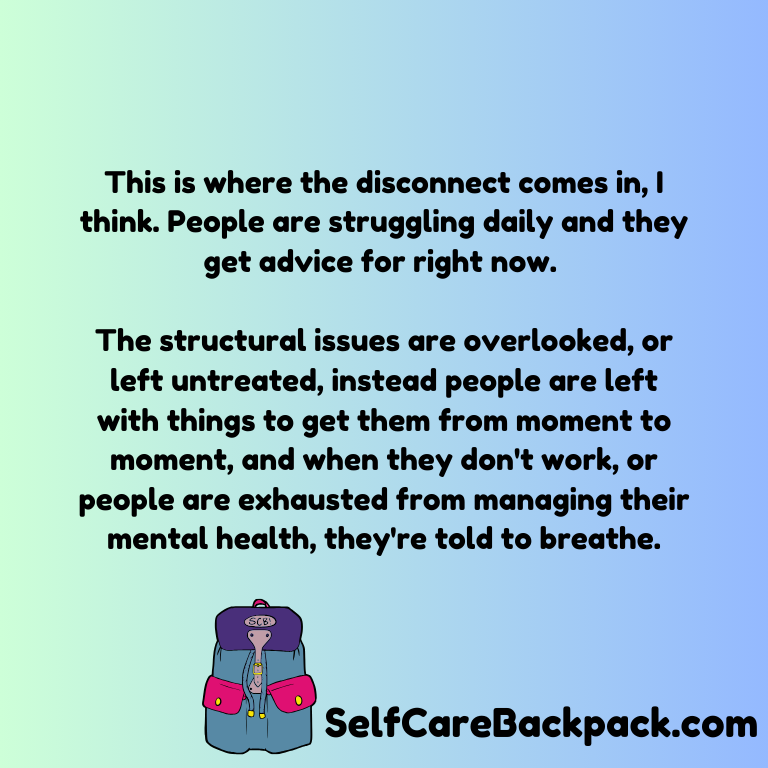
The tension of the moment self care advice • Buttondown
I want to talk about something I think we miss when we give out in-the-moment self care advice, and that's why to do the thing. A disclaimer, or a...
Finally: self-awareness.
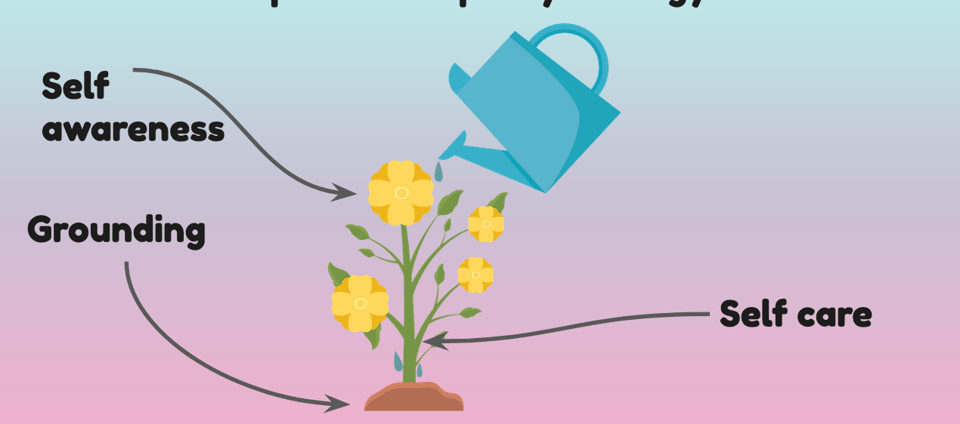
Empathy requires reflection. In order to be able to empathise and connect with others, you need to connect and empathise with yourself.
When was the last time you really listened to yourself? This is a difficult one, as we’re always in our heads, and our internal monologue is always there, but tuning in to what you say to yourself, when, and how, can help you learn your patterns.
Here’s some ideas for working on this:
Next time you achieve something, reflect on how you respond to that achievement. Do you celebrate it? Do you negate it as not being that good? Do you focus on what’s working for you as well as what you can learn and change moving forward? What words do you use? Why do you respond like this? What affect does this have on your actions?
Same as the above, but for when you don’t achieve something, or fall short of something you wanted to do. How do you speak to yourself in these moments, and why? What affect does this have on your actions?
Now, you might be thinking that you’re much harder on yourself than you’d ever be on others, so this exercise doesn’t give you insight on your empathy for others. That may be true, but knowing these patterns and how they affect you can help you understand yourself and others.
Once you know your patterns, you can start thinking about making changes if you need to. Most of the time the way we speak to ourselves is so habitual and instant that we don’t really know conciously what we’re saying to ourselves. Connecting our thought patterns to our actions is really important.
Some of you will be thinking that you are already self aware. Maybe even too self aware. Here’s the thing. Building empathy will mean you learn to be empathetic to yourself. You’ll turn that skill inwards. I have some reflection prompts on self compassion and kindness that will help you find out ways you can be kind to yourself and move towards self empathy.
Our internal world affects our external world, and learning to be empathetic to ourselves and our patterns can help us be more present in the world. It also gives us insight into when we’re reacting to something in an unhelpful way, and allow us to respond from a centred and grounded place.
Self empathy

Self-empathy means that an aspect of yourself observes, in an empathic manner, the aspect of yourself that experiences things.
Let’s look at our definition of empathy again.
In empathy, the empathizer understands, feels, and shares another person’s world with self-other differentiation
For self empathy we need to understand and feel our world. What are we feeling? Why? How?
That is empathy. In allowing ourselves to be open to our own experiences without instantly wanting to make change or commentary, we are showing ourselves empathy. Giving ourselves space to think about our feelings and experiences? That’s empathy.
We often think empathy requires us to agree with the other person or comfort them. Often people looking for empathy don’t want to be alone. They don’t want their problem solved, or agreement as much as they want someone to perceive them and their feelings and accept them. I know as leaders problem solving is the name of the game, but in the purest form, empathy is about togetherness, rather than solving a problem. Be with someone first, then solve the problem.
You can do that for yourself as well.
It’s difficult because we want to make changes, or improve something. We have habitual self talk that means we might shy away from our feelings. Would you want to spend time with someone who’s mean to you? Probably not, which is why a lot of us have trouble sitting with ourselves. We’re mean to ourselves.
Empathy is neutral, which is why it’s difficult. You’re sharing in a world without judgement. You’re with someone or yourself without acting on feelings, providing a solution, or anything like that.
By practicing empathy, we’ll learn to be empathic to ourselves, which in turn will make empathy for others easier. It’s a gorgeous cycle.
Empathy is difficult, so this will take practice and cultivation. Don’t be hard on yourself, be empathetic towards yourself, and it will become easier.
Some tips for practising and cultivating empathy
Practice curiosity
Practice mindfulness
Practice reflection
Practice active listening
My empathy as a skill series is here for even more reading: https://buttondown.email/SelfCareBackpack/archive/empathy-as-a-skill-part-1/
And finally a reminder of one of my favourite film quotes:
If there's any kind of magic in this world it must be in the attempt of understanding someone sharing something. I know, it's almost impossible to succeed but who cares really? The answer must be in the attempt. - Before Sunrise
Like this? Subscribe for more writing (free for writing twice a month, writing weekly from £5 a month)
Add a comment: